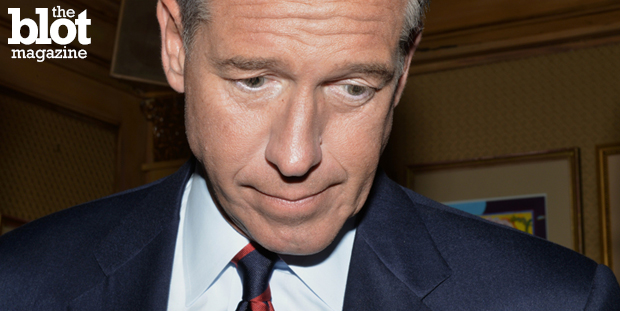
When you put the world “American” in front of something, it often becomes an iconic moniker in short order. Don’t believe me? How about names like “American Hustle,” “American Graffiti,” “American Apparel,” “American Sniper,” “American Pie,” “American Horror Story ” and “American Beauty,” plus a heck of a lot more? All it takes is a little “American ingenuity,” or “American muscle” to do the heaving lifting and get the marketing job done
Taking the power of the “American” brand into consideration, I’d like to reflect for a moment on a phenomenon I like to call the “American fibber.”
It’s not that Americans tell more lies than any other nationality. I’m sure everyone lies at more or less the same rate. But Americans do have a very interesting relationship with public figures who tend to bend the truth. Sometimes we forgive them, sometimes we cheer them on, and sometime we (we being the judgmental mob, I suppose) destroy them utterly.
As I mulled over how we treat the blatantly dishonest among us, I though race and gender might play a big part in who’s let of the hook, and who gets skewered. While race and gender are undoubtedly huge factors in some instances (O. J. Simpson comes to mind), when it comes to famous liars (not Joe Schmo down at the county courthouse), something less tangible might be influencing people’s opinions as well.
Forgiveness isn’t headed Lance Armstrong’s way anytime soon, and I’d be very surprised if Brian Williams will escape from his false claims of helicopter war glory with his career intact. On the other hand, when Bill Clinton told a bunch of lies (about sex), his popularly improved, and eventually soared. Although Tiger Woods had to spend some time in the wilderness for fibbing, he seems to have won back the sympathy of a large portion of the population, or the population that cares about golf, at least.
Chris Kyle, the Navy S.E.A.L. who spread lies about punching Jesse Ventura in the face (proven false in court), was still able to tell his tale, which (posthumously) became an astonishing box-office success. Mark Sanford lied his ass off about his whereabouts — and his fidelity to his wife — yet has somehow managed to remain an electable public servant who gets to put the adjective “honorable” in front of his name. Richard Nixon lied about his involvement in illegal wiretapping, and resigned the presidency in 1974 as a result. Hillary Clinton told a lie about ducking sniper fire in Bosnia in 1996. We’ll have to wait and see if she gets way with that one. (A presidential win would be a good indication that she got away with it.)
From the likes of Anthony Weiner to Bill Cosby, a lot of well-known Americans have told some whopping lies. Whether they’re truly punished for their crimes and untruths (end of career kind of punishments) depends on, in my admittedly non-expert opinion, a variety of things.
Read more: In Bill Cosby’s Defense — Kinda
Acknowledge that you’ve messed up, apologize profusely, let people know you’re trying to amend for your wicked ways (spending time with a minister or spiritual counselor is always a good idea), play into our love of second chances, and whatever you do, don’t start spinning more lies in a never-ending web in order to cover up the original falsehoods.
So yes, you can follow the rules and try to bounce back after you get caught telling a lie. Perhaps the fickle public will forgive you en masse, or else hang you out to dry. As far as I can surmise, your best chances of surviving scandal come with having an exceptionally charming and affable personality (Bill Clinton), and keep on winning at whatever it is you’re famous for doing and winning at (Woods), without cheating (or getting caught, like Armstrong). If you put those two things together, I believe the American fibber can pretty much get away with anything.
Carl Pettit is a contributing journalist for TheBlot Magazine.





